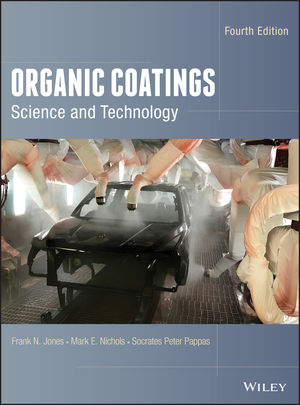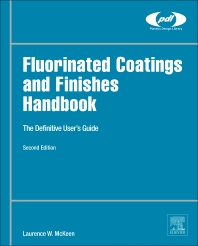Opening New Market Opportunities with Biobased Powder Coatings




The popularity of powder coatings continues to grow. These brilliant, durable finishes have been largely replacing traditional liquid paints and coatings for appliances, many automotive parts and a wide range of consumer goods.
But there are still many opportunities for growth in this market. Currently, the vast majority of powder coating applications involve metal substrates1 due to their high conductivity and heat tolerance. Powder coatings that cure at lower temperatures would vastly expand the product categories that can be safely and successfully coated.
At the same time, consumer demand and regulatory pressures are pushing manufacturers to make their manufacturing processes as environmentally friendly and sustainable as possible. Replacing petroleum-based resins with renewable biobased options would make this technology, already considered more sustainable than liquid paints, even more attractive.
So far, biobased powder coatings have not taken over a significant share of the market, largely due to performance and cost concerns. But new research into biobased coatings could soon turn the tide. Battelle is developing a biobased resin that delivers high performance in a product that cures at temperatures low enough to be used on wood, medium-density fiberboard (MDF) and many types of plastics.
Another Shade of Green for Powder Coatings
Powder coating is already considered a green technology due to its low waste and emissions. However, most powder coatings still rely on petroleum-based resins. Moving to biobased resins would add another facet of sustainability that is likely to appeal to consumers and regulators alike.
Biobased resins offer a number of benefits for manufacturers.
- Consumer value: More consumers are concerned about the sustainability of materials used in the products they buy. Biobased resins allow manufacturers to offer consumers products that match their values. In addition, programs such as state and federal “BioPreferred” purchasing programs, and LEED building credits provide incentives to use more sustainable materials and products.
- Price stability: Historically, prices for petroleum-based chemical feedstocks have fluctuated widely with the prices of crude oil. Prices for biobased feedstocks such as soybean oil have been very stable historically,2 with the exception of a temporary spike in 2008 when interest in biodiesel fuels disrupted the market.
- Environmental and regulatory concerns: Moving to biobased materials can help companies meet environmental goals and prepare for future regulation. Biomaterials are more sustainably sourced and may present fewer environmental concerns overall. In addition, moving to biobased resins presents an opportunity to benefit from more recent process improvements and efficiencies in powder coatings.
However, these benefits alone will not convince most manufacturers to make the switch. To gain significant market share, biobased powder coatings will have to clear two additional hurdles.
- Value: Both raw material and production costs will have to be low enough to make biobased materials price competitive with current petroleum alternatives unless additional value can be demonstrated to justify higher prices. Currently, the industry is in a “chicken and egg” scenario: because demand is low, supply chains and manufacturing processes have not ramped up enough to produce the economies of scale that would bring biobased materials into price parity with their petroleum counterparts.
- Performance: Biobased resins will have to offer performance that is similar to - or better than - petroleum-based products in terms of hardness, durability, color saturation, gloss, color stability and other specifications. Many of the early attempts at creating biobased powder coatings have failed to deliver the performance expected and required.
Battelle is working to overcome these challenges and create a biobased powder coating that is both price- and performance-competitive with petroleum-based products. Performance is the first key: the industry will not adopt a biobased product to scale until its performance is demonstrated to be equivalent to or better than existing products. Once performance issues are addressed and production ramps up to industrial scales, prices for both resins and formulated powder coatings are expected to fall to ranges similar to those for petroleum-based products.
Biobased resins have the potential to deliver higher performance or new attributes that are not currently available in petroleum-based resins. While there has been progress in creating low-temperature petroleum-based resins, in particular with the use of UV curing, so far this problem has not been adequately solved. Battelle’s biobased resins possess lower temperature performance characteristics that could make them better suited for heat-sensitive applications. Using lower-temperature cure conditions, a biobased formulation would open up the range of products that could be successfully powder coated and provide a powerful incentive for manufacturers to switch to biobased options.
The Promise of Low-Temperature Powder Coating
Currently, powder coatings are mainly used for products and components made of metal, which are electrically conductive and can handle the high heat required to melt and cure most petroleum-based resins. This leaves a whole universe of other product categories that could benefit from the use of powder coatings if they could only take the heat.
One of the biggest opportunities for expansion of powder coatings is for products made of medium-density fiberboard (MDF). MDF is used for all kinds of consumer products including ready-to-assemble furniture, cabinetry, countertops and other building materials, store displays and point-of-purchase installations, and a broad range of other products for home and office.
MDF’s material properties, along with the types of products it is used for, make powder coating an attractive option. MDF provides a smooth, stable surface with low porosity. However, it is also heat sensitive, making it unsuitable for use with powder coatings requiring high curing temperatures. As with all wood products, conductivity and moisture content must be controlled for successful powder coating.
Biobased vs. Petroleum Chemistry
Like all powder coatings, biobased versions combine finely ground particles of resin and pigment along with a curing agent and other additives. When these particles are electrostatically charged, they can adhere to a conductive surface in an even layer. When heat is applied, the resins in the mixture melt, flow and cure to create a hard, durable, uniform coating. Battelle’s approach to creating biobased powder coatings is to design the resin as a drop-in replacement to conventional petroleum curing chemistry for straightforward product adoption. This means that companies will not need to make significant changes to their current processes and technologies to take advantage of the added value provided by low-temperature-curing biobased resins.
Petroleum resins have been widely used historically because they are readily available, offer a wide range of performance properties and are cost competitive with other coating technologies. Moving to biobased resins will open up a different range of potential performance properties due to the different underlying chemistries involved; there will be some performance characteristics that will still be more efficiently produced using petroleum resins, while others will be more effective with plant-based materials. One area of continued research for Battelle is to identify the performance characteristics where biobased materials offer a meaningful performance benefit that cannot be easily replicated with petroleum versions. In the case of the biobased resin, low-temperature melt flow appears to be a differentiator while providing a durable coating.
Overcoming the Barriers to Biobased Powder Coatings
A viable biobased, low-temperature resin would give manufacturers a more sustainable and versatile powder coating option that could be used on a broad range of products and offer increased design options and customization. Reducing reliance on petroleum would also improve price stability and help the industry minimize its environmental footprint. Replacing just 25% of powder coating resins with biobased alternatives would result in significantly lower carbon emissions and greater sustainability for the powder coating industry. Investing in research into renewable technologies now will help the industry be better prepared for consumer, regulatory and market demands in the future.
Battelle’s research into biobased resins for powder coatings has produced promising results. So far, the research team has completed bench-scale studies producing multi-kilogram batches to demonstrate the viability of a low-temperature cure resin with the required performance properties. The resin could potentially be used for both low-temperature applications such as MDF and for high-temperature processes used for metals, opening up the possibility of a single formulation that could be used on a variety of products or for products made of mixed materials.
More work remains to be done to optimize formulations for hardness, durability, color saturation and other requirements. Battelle is currently seeking formulators, coaters and brand owners for beta testing of the biobased resins. The results of these real-world industry trials will be used to refine the resin composition and powder formulations that brings a needed option to the powder coating industry.
References
1 Pinoforte, K. The Powder Coating Market, Coatings World. December 18, 2015. https://www.coatingsworld.com/issues/2015-12-01/view_features/the-powder-coatings-market-/.
2 Soybean Oil Prices – 45 Year Historical Chart, Macrotrends. November 22, 2017. http://www.macrotrends.net/2538/soybean-oil-prices-historical-chart-data.
Looking for a reprint of this article?
From high-res PDFs to custom plaques, order your copy today!










